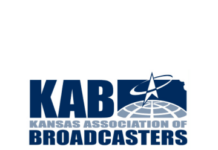
After a heated public discourse with FCC Chairwoman Jessica Rosenworcel, Federal Election Commission Chairman Sean Cooksey has announced the agency will not pursue rulemaking on the use of artificial intelligence in political campaign advertisements.
The FEC’s decision follows a comprehensive review of a petition filed by Ralph Nader’s think tank and consumer advocacy group, Public Citizen, in July 2023, which sought to address concerns over deceptive AI technologies, such as deepfake videos, influencing voter perceptions.
Public Citizen’s petition requested that the FEC clarify that the existing rules against fraudulent misrepresentation apply to AI-generated content in campaign communications. This proposal aimed to mitigate the potential for AI technologies to create misleading representations of political figures or statements, which could sway electoral outcomes without voters’ knowledge.
The FEC’s review process included a period of public commentary, during which over 2,000 responses were collected from various stakeholders including Congress members, political party committees, and advocacy groups. The majority of these comments supported the need for regulation to prevent the misuse of AI in elections.
However, Cooksey cites several factors that prevented a rulemaking initiation in an agenda item ahead of the FEC’s August 15 meeting.
The FEC concluded that it lacks the statutory authority to regulate AI-generated content as proposed. The existing laws only address misrepresentations made directly by candidates or their agents that are damaging to opponents. The broader implications of AI-generated content fall outside this scope.
The FEC expressed concerns about its capacity to effectively regulate AI without the requisite technical expertise. The complexity of AI technologies and the rapid pace of their evolution present significant challenges in crafting precise and enforceable rules.
Given the current limited use of AI in federal campaigns and the lack of evidence showing significant harm from such use, the FEC deemed it an inefficient allocation of limited resources to pursue a regulation that might not address any substantial existing problem.
The decision also highlighted the potential First Amendment issues that could arise from regulating AI-generated content. The commission noted the delicate balance between preventing deceptive practices and upholding free speech, particularly in the politically charged arena of campaign advertising.
While the FEC has decided against rulemaking at this time, the door is open for future discussions and potential legislative action if AI’s role in campaign communications becomes more pervasive and problematic. This leaves the FCC as the only federal agency seeking to rein in AI use in political ads, with a Notice of Proposed Rulemaking that would mandate radio and television stations, along with other FCC licensees, report political ads that use generative AI.
While the FCC seeks feedback on the NPRM, the NAB and the Motion Picture Association have requested that the comment and reply periods be extended through November 4, effectively preventing any rule from taking effect in a time period that would involve the 2024 presidential election.









